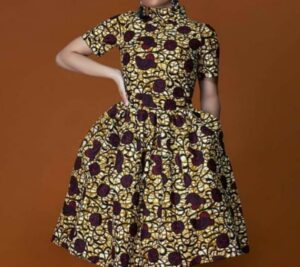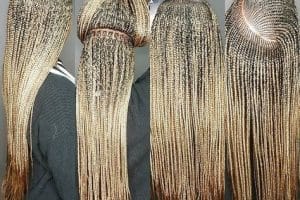Kenya is not like some African states that have national dresses or some unique fabric that largely signify their identity and as a nation we must not be proud of importing everything from the west.
There are African states like Ghana, Nigeria, Senegal and name it but Ghana to be specific has a national dress they don with high level of patriotism. Nigeria among other African states that have strong sense of African fashion, at least have thing common in them. They embrace ‘kitenge’ to core.
There is no doubt ‘kitenge’ is one fabric that purely ansd deeply resonate with Africa. It is African, when you see kitenge, any shot in the dark will be to Africa.
Common towards central before you town south where regalia that deeply portrays the African culture is donned or to the Indian ocean shores where ‘dera’ is the host of Swahili culture, Tanzania is not dragging behind but Congo is also doing good.
Congolese women paint African beauty in another level with kitenge, their men too but they spoil the story when they embrace too much Italian and French lables coupled with lightened good.
By proposing to have day to embrace culture like this, Kenya must be serious and this must be good story to our struggling fashion industry. Fashion and culture don’t split.
Already there are young Kenyans making a living out of this struggling industry and what drives most of them is passion over profit.
Winnie Seda of Winseda African Designs is one of them, she driven by passion for fashion, that’s how she puts it. The 26 year old graduate has cut herself a nitch in the fashion world. She is majorly designing and making Ankara and other sort of African wear in.

After starting as a model, she rose to having her work showcased by other models in the runway. She has been in the industry for more than five years.
It is growing but many challenges are there because many Kenyans are still not comfortable with fixed price when materials can be expensive especially you have to imported. That coupled with the cost of production pushes the business to fix prices in order to stay open.
Kenyans again have not really embraced the culture of wearing African fabrics to work. Only hotels do it commonly to appeal to the tourists but it’s about time companies and offices began setting a day in a week to celebrate the African culture through fashion and Ankara can do it.
Fashion lovers like Seda are trying to instil this and if BBI report is implemented, at least this can be a reason for the industry to smile. Strictly regulations should also be in place if not a complete ban on countries that bring in a lot of counterfeits. They are killing industries and livelihoods.
Ankara is embraced and loved by young women who still dare to rock African boldly. It’s beautiful and fresh, she says, alluding to the fact that kitenge or African fabrics amazingly mix with designs or fabrics from the west. Like kitenge top can ‘match’ with khaki pants and smart jeans.
Pieces from African fabrics can be used to create nice patches and patterns on T-shirts, jeans or even shoes and the feel will be African.
This a trend already, Seda produces her ankaras in bulk and some of her buyers are buyers, mostly retailers, are always appalled by her speed and delivery of good products.
You never work a day when you love what you do; the only works is in creativity and putting the pieces together is not really a task if you invest in good machines to maintain the good quality signature.





















